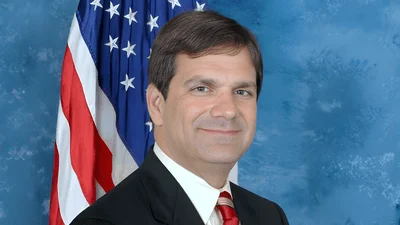Congressman Sanford D. Bishop, Jr. (D-GA), Chair of the Agriculture, Rural Development, Food and Drug Administration and Related Agencies Appropriations Subcommittee, delivered the following remarks at the Subcommittee's hearing on the USDA’s proposed relocation of the Economic Research Service and the National Institute of Food and Agriculture:
The Subcommittee will come to order.
Good morning.
I want to welcome everyone to today’s hearing.
Today we will hear from two panels as we discuss the Department’s proposal to relocate the Economic Research Service [ERS] and the National Institute of Food and Agriculture [NIFA].
On our first panel, we will have Ms. Kristi Boswell, senior advisor to Secretary Perdue.
Our second panel consists of four senior, former USDA officials. Two are former Under Secretaries for Research, Education and Economics and two are former Administrators of ERS. Combined they have 70 years of experience at USDA. They bring unparalleled understanding of the agencies’ operations.
All our witnesses’ insights will be valuable to the Subcommittee as we discuss the Department’s proposal and I thank you all for your participation today.
Last August, with no prior notice to anyone - including employees, stakeholders, and even Congress - the Department announced a plan to relocate ERS and NIFA outside the National Capital Region.
Since that announcement, this committee has heard from many, many stakeholders. But to date, there has been little or no debate about this proposal in a public forum.
Further, despite multiple requests for information, USDA has moved ahead. At the moment, there are far more questions than answers.
This is not for lack of trying on our part. Since the proposal was announced last August, we have sent written communications and held phone calls and meetings with USDA and Secretary Perdue himself, asking for more information. We continued to air our concerns about lack of justification for the proposal and a cost-benefit analysis showing this was a good move. I cosponsored a bill to stop this move and we included report language in the 2019 omnibus. All that to no avail as USDA continued to ignore us and move forward.
That is why I decided to hold this hearing. In fact, it would be irresponsible not to have a hearing on this proposal as it has far reaching implications. I intend to examine USDA’s intentions and any analysis that was done by the Department about the consequences associated with relocating NIFA and ERS.
I am worried that the method for rolling this proposal out and the lack of clear, transparent communication with ERS and NIFA employees has already done irreversible damage to the Department’s reputation.
How will the Department attract and retain highly qualified staff to ERS and NIFA if its current workforce loses trust in its leadership?
One of the justifications the Department provided for the proposal is that it will place important USDA resources closer to its stakeholders. However, neither the public nor stakeholders were given notice or the chance to weigh in and comment. Further, wherever you relocate these agencies, it would be inconvenient for someone else. For some stakeholders who have limited resources, such as 1890 and 1994 land grant schools, moving the agencies outside of the DC area away from other federal agencies would mean additional expenses they’d have to incur in order to maintain collaboration.
Ms. Boswell, in your testimony, you acknowledge there were “missed opportunities" to engage stakeholders. Referring to this as a missed opportunity is grossly under-representing these errors.
Perhaps the biggest unknown of this proposed relocation is what analysis the Department has done that shows any potential savings. Instead of providing data, the Department merely asserts that there will be savings. Does that assertion also look at the lost opportunity cost of years of reduced staff and productivity as these agencies struggle to recover in a remote location? We don’t know, we don’t have a cost-benefit analysis, and we need to know.
I also find it ironic that a proposal involving data-driven agencies seems to have no hard data supporting it.
If this move were to happen, there is no question that it will disrupt normal operations at each agency. Our nation’s agriculture industry cannot afford delays to the vital economic data that ERS provides and the technological innovations that researchers and universities develop through NIFA support. Let’s not give our farmers and researchers a raw deal.
Finally, the Department has also proposed to realign ERS under the Chief Economist. Our focus today is on the proposed relocation because that issue was resolved in the 2019 omnibus.
However, I want to make very clear that my strong opposition to the realignment is not “conflating realignment with relocation for the purpose of halting progress on relocation," as Ms. Boswell’s testimony suggests.
It is simply a bad idea.
So, for today, I welcome a robust discussion on this issue and know there will be continued interest as we move forward. I do appreciate your active participation.
Source: U.S. Department of HCA








